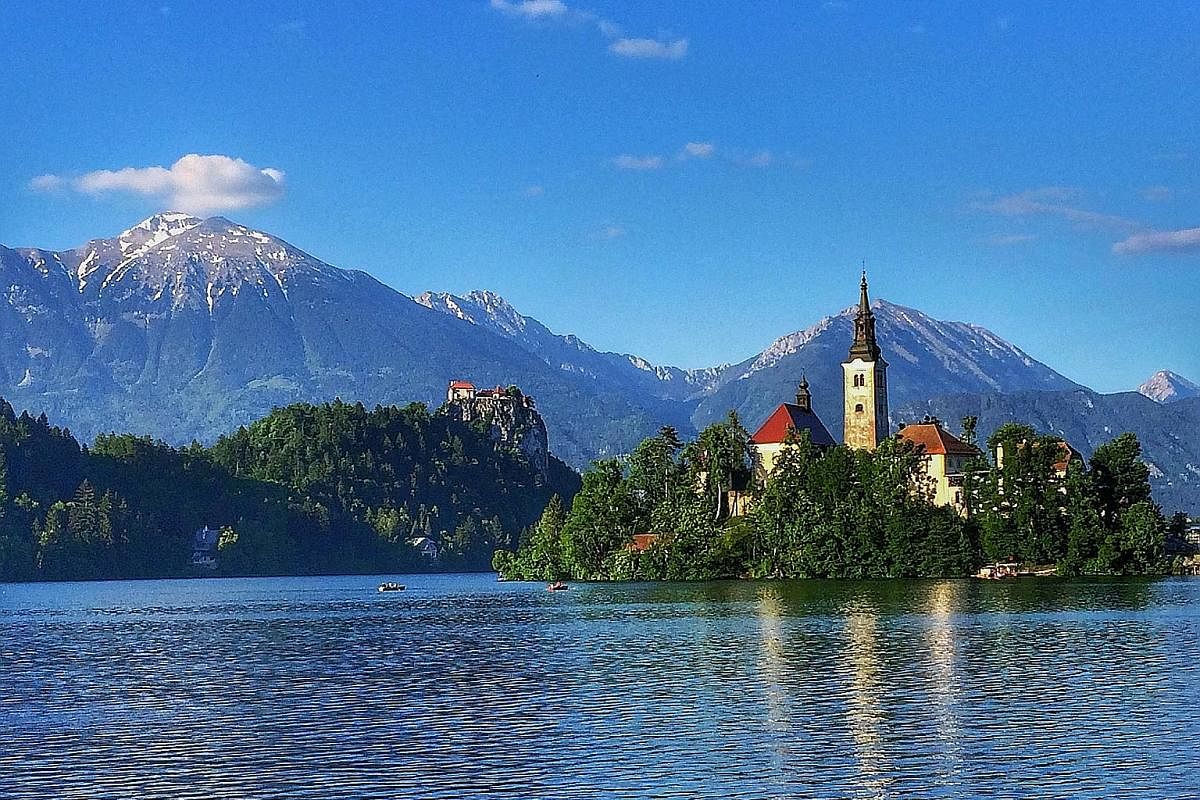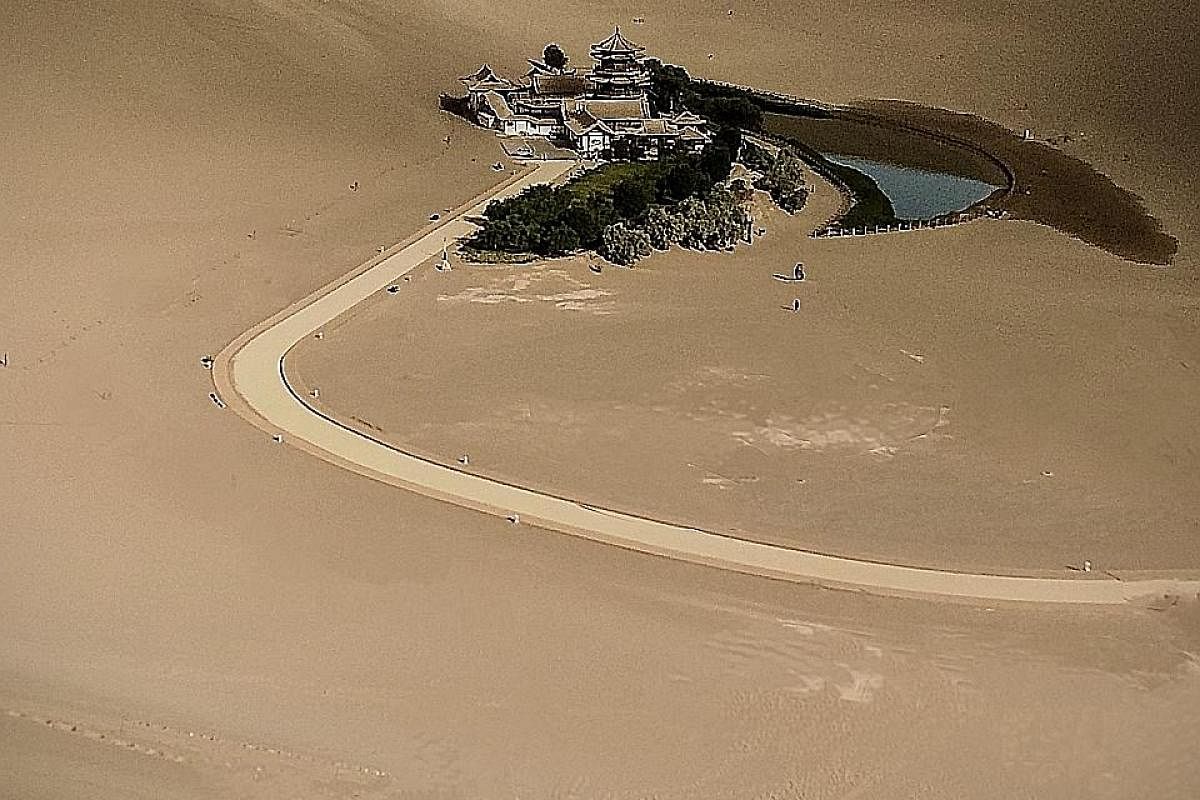New rules for post-vaccine travel
With border restrictions still in place due to the pandemic, you will need more than just a passport to travel


Back in March, almost every evening for two weeks, I would pass by the vaccination centre to try for a standby shot.
Finally, on a Saturday afternoon, the queue administrator said: "Come back during the last slot at 8pm."
That evening, I joined Team Pfizer. Thoughts of safer travels bounced happily in my head.
Singapore's vaccine roll-out and the robust pandemic controls are the envy of many countries.
In April, the Bloomberg Covid Resilience Ranking named Singapore the safest place in the world to be during the pandemic.
With the nation ramping up its vaccination rate and targeting to have two-thirds of the population fully inoculated by around National Day, more activities will resume in a calibrated style, so the Republic is expected to stay high on the chart.
Also, Health Minister Ong Ye Kung has hinted at a return to leisure travel by the end of the year.
Though borders may open and close again with Covid-19 variants, it is clear that vaccination and testing will become de rigueur for travel.
Here is what you should know about post-vaccine travel at a time when borders are starting to reopen.
VISIT US - ONLY IF YOU ARE VACCINATED
Singapore's health authorities have bet strategically on the Pfizer-BioNTech and Moderna vaccines, which have the highest efficacy rates.
Following the approval by the World Health Organisation (WHO) for emergency use, Singapore granted China's Sinovac vaccine a special access route through licensed private healthcare practitioners.
However, it is not under the Republic's national vaccine programme.
As swathes of territories reopen, some will offer vaccinated travellers quarantine-free entry. Recovered Covid-19 cases or non-vaccinated travellers will have more hoops to jump through.
"The vaccine is a traveller's silver bullet. It provides acceptance and access, and gives me peace of mind," says Ms Eva Wang, an investment manager based in Dubai and a fellow traveller who has visited more than 50 countries.
The 27 member states of the European Union (EU) may accept non-EU tourists from low-risk countries if they have received the approved doses from Pfizer-BioNTech, Moderna, Oxford-AstraZeneca and Johnson & Johnson.
This may further expand to include WHO's emergency-use listings such as China's Sinopharm and Sinovac.
Some countries are already giving vaccinated travellers a free pass.
Since July 1, Iceland has waived on-arrival Covid-19 tests, allowing visitors to hit the road immediately.
United States-based research scientist Ethan Brodsky, another travel buddy, visited Iceland twice in two months recently.
"I feel so alive travelling again. And I am looking forward to returning to Singapore to check on the urban otters," he says with a chuckle.
Nearer home, Phuket in Thailand has waived its quarantine requirements for vaccinated travellers since July 1.
After two weeks in Phuket, vaccinated travellers who test negative for Covid-19 can roam throughout the kingdom.
Discriminatory as it may sound, more travel operators that organise experiences in confined spaces are not taking chances.
Natural Habitat Adventures, a US-based outdoor operator, requires all clients to be fully vaccinated for its global trips from this month.
Its website says: "We seek to be responsible travellers in the places we visit, which includes doing our part to mitigate the spread of Covid-19."
The award-winning agency plans "life-changing" wildlife experiences for small groups of nature lovers.
A five-night expedition in a mobile lodge on the frozen Arctic tundra costs US$10,000 (S$13,500) a person on a twin-share basis. Polar bears snuggle up to the lodge, pressing their noses against the walls as breakfast is prepared.
Cruise operators, meanwhile, are accepting only fully vaccinated passengers on selected sailings.
Royal Caribbean, for example, requires all passengers and crew to be fully vaccinated for cruises leaving from Israel, the Bahamas, Bermuda, Cyprus and Britain.
"No jab, no go," says a cruise industry operator whose ships move between Europe and South America.
"We can't afford to lock down or turn around a ship because of a single passenger."
NOTARISE AND GET DIGITAL COPIES OF HEALTH CERTS
There are four important items in my $2 Daiso vinyl bag - passport, an envelope of foreign currencies, international driving licence and a tattered yellow WHO booklet of my vaccination records.
The latest addition is a hard copy of my digital Covid-19 vaccine certificate.
After my second dose, I was given an old-school copy of my Covid-19 vaccine certificate as a keepsake. Now, an electronic PDF copy is attached to my account under the national HealthHub app.
But this is scant in details and will not pass muster at international borders.
Take it one step further.
Notarise it and create a digitised version. Just use your Singpass to log into the national platform for validating digital documents (www.notarise.gov.sg).
In four simple steps, within a minute, I received my digital vaccine certificate in my e-mail, complete with a QR code plus details of my passport/identity card and the vaccination shots.
VACCINE PASSPORTS AND HEALTH PASSES
Whether it is a "vaccine passport" or a "pass", airlines - and health and travel authorities - are scrambling to come up with efficient, tamper-proof documents to verify one's health status as travel picks up.
The EU's Green Certificate aims to enable quarantine-free travel among its member states.
Singapore Airlines was the first in the world to "live-test" the International Air Transport Association (Iata) Travel Pass (str.sg/3JnM).
Iata, which counts about 290 member airlines worldwide, has more than 70 airlines committed to trials of its app. The pass provides assurance to the authorities that travellers are vaccinated and Covid-19-tested via endorsed laboratories. It also helps to verify that border entry requirements are met at check-in or at immigration.
"It is not possible for the passenger to tamper with the data," says Mr Vinoop Goel, Iata regional director, Airports and External Relations, Asia-Pacific, in response to queries from The Straits Times.
Checks are also in place to ensure the passenger's identity is correct.
He adds that Iata has worked with the Singapore authorities to incorporate its vaccine certificate into the app. It is free to download, but password access is provided only by the airline you are travelling on.
Because of high testing costs, fake certificates have surfaced in countries such as Britain, the Netherlands, France, Pakistan and India.
The Indonesian police also broke up a syndicate and reported that about 9,000 people were given reused nose swabs in Medan's airport. Such abuses make it critical to have a reliable, internationally accepted endorsement of one's health status.
Goodbye, weekend jaunts
TRAVEL GETS EXPENSIVE
A two-week Phuket jaunt now requires a Thai Embassy-issued certificate of entry, a pre-departure Covid-19 test, Covid-19 insurance specifically for Thailand, three Covid-19 tests in Phuket and a pre-returning Covid-19 test for Singapore.
Plus, there is a 14-day quarantine to welcome you home. Multiply that by the number of travellers in your family and the sunk costs are alarmingly high. It only makes sense to travel more purposefully and to take a longer trip.
Families with unvaccinated kids may face a dilemma as they unravel the rules at each destination, at a time when health authorities are mulling over vaccination age limits and what a balanced approach to quarantine should entail.
In Phuket's case, quarantine is waived for unvaccinated children under 18, if travelling with vaccinated parents. But that also means exposing the kids to the virus.
A milestone trip will never be worthwhile if a child is infected with Covid-19. And the Delta variant has certainly caused an increase in the number of younger cases.
Canada strikes a delicate balance. Returning vaccinated citizens - with negative test results - skip quarantine completely but unvaccinated children below the age of 18 need to quarantine at home for 14 days.
REGIONAL TRAVEL BUBBLES ARE FAR-FETCHED
I know of a business owner from an Asean country who sneaked in a getaway to Istanbul during the Hari Raya Puasa holiday in May.
Upon returning home, she paid US$1,500 in service fees to a medical agent to "short-circuit" her quarantine stay. She was released from quarantine after a three-night stay.
Her brother contracted Covid-19 last December and her father was stricken last month. And last week, her mother and younger sister tested positive. The business owner is the only person in the family who is Covid-19-free. There was no contact tracing done when her family members fell ill.
Covid-19 will become endemic but, unfortunately, inept governance and corruption are already endemic to some degree across the region. A region-wide bubble is still dangerous.
KEEPING AN OPEN MIND FOR CHANGES
With the pandemic far from over, Covid-19 outbreaks can occur overnight.
Shortly after my full vaccination in April, I started planning a June bucket-list trip to the Seychelles, with a stopover in Dubai before dovetailing my journey with the Phuket reopening this month. It was going to be my two-month revenge trip.
At that time, the borders of the Seychelles and Dubai were fully open. Both had among the world's most vaccinated populations.
But in May, the positive rates spiked for both countries. I canned the trip without much hesitation.
Reasons for the jump in the number of infections are unclear, but observers have pointed out that the Seychelles reopened its borders in March, removed all quarantine measures and relied solely on Covid-19 test results.
About 60 per cent of the vaccine doses administered in the country were Sinopharm, with the rest being India-made AstraZeneca vaccine doses, Bloomberg reported.
The United Arab Emirates (UAE) is now offering those vaccinated with Sinopharm a third shot as a booster as the number of its daily new Covid-19 cases stays persistently above 1,000, which is higher than last December when it started its vaccination programme.
The UAE has since added Pfizer-BioNTech, Russia's Sputnik V and Oxford-AstraZeneca to its list of vaccines.
As people gingerly move towards the reopening of borders, curbs may come and go. They just need to take sudden changes in their stride while mitigating the risks. The world cannot live in a cocoon forever.
While I plan with hope, I will monitor the Covid-19 cases for my intended destinations, book with careful examination of the cancellation policies and take up Covid-19 travel insurance (see other story).
Fresh air is in, while densely packed cities are out for me. Animals and nature are in, festivals with heaving bodies are out.
With the severe acute respiratory syndrome epidemic in 2003, people took steps to return to travel.
"You can't fax a handshake," I recall a catchy television advertisement saying at that time.
This time, it is more challenging, with more baby steps required.
But I will add: "You can't Zoom a hug."
• After a travel hiatus lasting 18 months, John Tan will embark on a business trip to Canada followed by a revenge trip around the Caribbean.
Join ST's Telegram channel and get the latest breaking news delivered to you.
A version of this article appeared in the print edition of The Straits Times on July 13, 2021, with the headline New rules for post-vaccine travel. Subscribe
